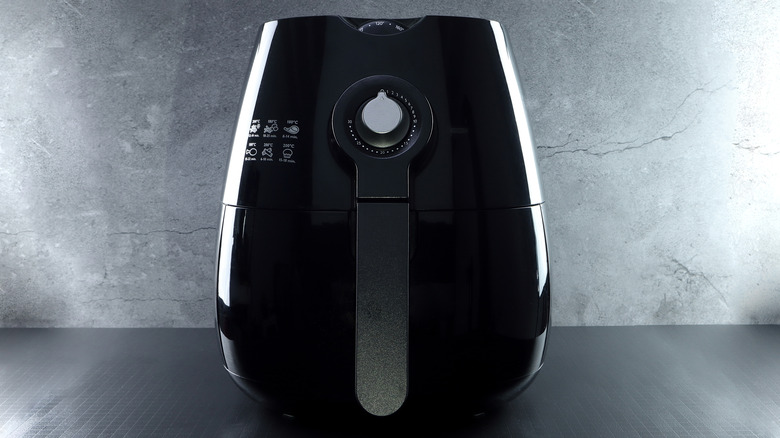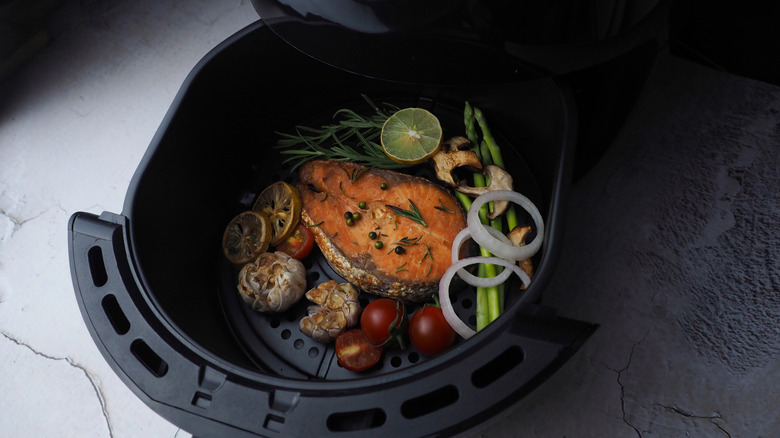Should You Thaw Frozen Fish Before Putting It In The Air Fryer?
Picture it. You've bought an air fryer and some frozen fish, but are pressed for time. Should you simply shove the fish into the fryer? New users to air fryers may be confused by the contradiction between the advice given by the FDA and that given by air fryer enthusiasts.
The disciples of the air fryer, like Air Fryer World, tell you that you can put a frozen fish into the fryer without worrying about thawing it. Just make sure the fish is actually cooked through before biting into it. Fast Food Bistro also defends skipping the thaw period. If you preheat your air fryer at 390 degrees Fahrenheit, the actual cooking will take less than 20 minutes.
Such statements run very much against the recommendations given by the FDA. To serve frozen food safely, they say you should leave the frozen fish in the refrigerator overnight. One has to be right, right?
Less should than can
The answer is that you can definitely cook the fish without thawing it first. The FDA's recommendations even include a microwave defrost option, meaning that cooking it directly is technically feasible. However, if you want better quality fish, you probably shouldn't.
The issue is not with the air fryer, which will do its job well, but the fact that the fish should be thawed. If you cook the fish straight from frozen, the heat will not cook the fish evenly. The exterior will heat up before the interior, causing moisture to run and the skin to become over cooked. "More moisture leads to less flavor and increased sogginess, which you don't want," Bon Appétit explained.
Epicurious didn't believe the hype that you could cook frozen fish either, so they tested it in the kitchen. Of their attempts with salmon and swordfish, they wrote "The texture was that of a memory foam mattress, with not even a hint of flakiness. And the flavor was, well, watery — a result of the murky pool of liquid that seeped out of the fish during the cooking process." Tilapia was a bit better because the thinness of the fish meant that heat traveled more efficiently.
So, the answer is a definitive "you shouldn't," but not necessarily a "must not."

